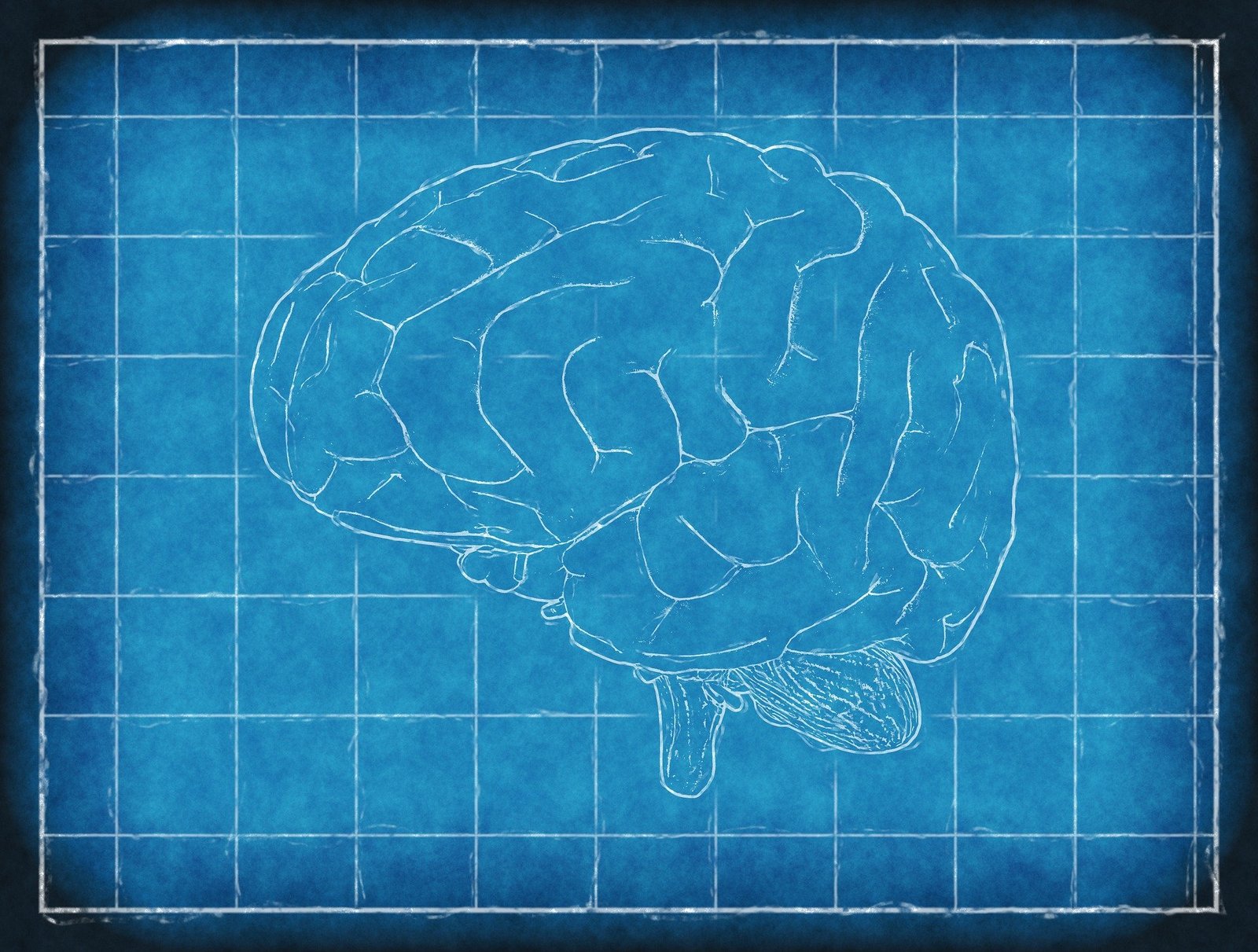Is autism an illness or merely a difference? Charting a path out of the Autism Wars, the conflict over the concept of neurodiversity.
There are quite a number of important ideas in history that exist in an intuitive form, without necessarily being named in so many words. Most cultures have probably had an idea of ‘sanity’ and ‘insanity,’ but the notions of ‘neurodiverse’ and ‘neurotypical’ are more recent developments in intellectual history, and are not quite the same. To speak of sanity or insanity is not only to speak of facts, but also to appraise and evaluate. There is a strong note of approval in the word ‘sane,’ and of disapproval in the word ‘sane.’ It is unsurprising that sooner or later, new vocabulary might arise to challenge any existing morally charged notions of the human mind. Post World War II, the postmodern ideology of 60s Paris spread across much of the world; but it was not until 1998 that the Australian intellectual, Judy Singer, coined the term ‘neurodiversity,’ which has been widely (but far from universally) adopted among people with autism or other disabilities and mental health diagnoses, as an alternative to classically religious or medically centred visions of the human brain and behaviour.
The irony, however, is that the word ‘diversity’ is a morally charged notion, and has been for some decades. On level, to speak of this or that mind as being ‘diverse’ can be understood as saying it is not bad, nor pathological, nor incomplete nor deficient nor immoral nor wicked nor inauspicious or even satanic. However, to use a word with explicitly positive connotations, like ‘diversity,’ is not so much to evade evaluation, as to invert the terms. Differences may be a question of fact, but diversity is a question of value. If someone says that their workforce is diverse, or that a religious organisation or charity or creative movement is lacking in diversity, they are making a morally unambiguous evaluation, whose normative charge is unmistakable and fully tangible to all who hear it.
This, in turn, has sparked great conflict between individuals with disabilities and mental illnesses, and indeed those who care about them also. The idea that autism, with its sky-high suicide rates, physically traumatising co-morbids such as irritable bowel syndrome, and often catastrophic economic impact on the individual patient and their loved ones, is a form of ‘diversity’ is often a contentious notion that some individuals find does not chime with the experience either of them or their loved ones.
This being so, the Autism Wars have become a very unpleasant feature of human existence, both online and offline. It is tempting to endeavour to seek a pathway beyond the current Total War between supporters and critics of the Neurodiversity Paradigm. But if such a pathway is ever to be found, it would appear a strict necessity to ask the right questions, to begin with. For from either a question that is downright false, or at least one that is misleading and somehow ideological and distorting, false or misleading answers will issue with an imperishable iron necessity, to the inevitable detriment of all.
This being so, it is helpful to provide a useful sketch of the core tenets commonly held by people on either sides of the Autism Wars. A rough and highly generalised (and thus ultimately imperfect!) schema might look like this:
Pro Neurodiversity and Anti Neurodiversity
Is the Neurodiversity Paradigm (henceforth NP) an accurate and morally acceptable model for understanding neurodivergence and neurotypicality, and of the experiences of people of the various neurotypes in our world today? Or is it inaccurate and morally dangerous?
Anti Essentialism and Pro Essentialism
Should Neurotypicality be considered the gold standard for human beings, or should a variety of neurotypes be affirmed and celebrated?
One Nature or Two Natures
Is my or your neurodivergence a secondary, external affliction, or does it go so deep down into our very being that it’s not possible, let alone desirable, to talk about a ‘normal’ human being buried beneath the autism?
Identity Politics and Universalism
Is it preferable to better the interests or wellbeing of neurodivergent people by rejecting much of current activism as divisive and sectarian and partisan and heavily emphasising universalism, or is it better to align with it, so that a deeper and more textured version of universalism can paradoxically emerge from identity politics?
Social Model of Disability and Medical Model of Disability
Are human beings impaired by nature, by biology; but disabled only by nurture, by society? Or are human beings disabled by biology, and the social context should be spoken of otherwise than as ‘disabling’ people?
I have tried to render these five questions fairly to both sides; and I am also aware that it is very difficult to frame them in a way that is not to some degree simplistic and reductionist. It seems unlikely that everyone will agree with the schema here. But limited as the model here is, there is a very high convergence around the first term of each dilemma; and likewise, there are many people who also converge around the second terms of each dilemma. That’s not to say, of course, that there do not exist significant disagreements within each term. For example, supporters of the NP do not agree on all matters, nor do all anti-NP critics. But on the whole, the model above seems about as accurate as I can make it, given the complexity of the topic.
Having myself been a staunch critic of the NP in the past, but having subsequently distanced myself some years ago from the Autism Wars, and in a very explicit manner, I am rather sceptical of the limitations of both sides. But by way of goodwill, I am going to speak a little here about the limitations of the anti-neurodiversity faction; instead of simply speaking of those in the pro-neurodiversity faction, as I have done in the past. My purpose here is not to criticise people in either side of this dispute, or to trivialise their pain; it is simply to try and gradually carve out a path beyond this dilemma. This requires a great deal more time and energy than one article from one writer can ever reasonably hope to furnish: but for my part, I believe it is worth treading a little further into the current labyrinth of a seemingly incessant Total War between pro and anti NP advocates and critics; in the hope that in doing so, it might be possible to move a little further out beyond this maze of distrust, suspicion, and mutual embitterment.
Such a discussion could best be described as ‘Anti-Anti-NP,’ rather than ‘Pro-NP,’ because the desire to move beyond the current mutually destructive hybrid civil war is worth pursuing, however many possible past, present or future friends and associates any new pioneers might risk losing among the way.
Science and Rationalism
The first point to be made here is that neither supporters nor detractors of the NP are fully consistent on the topic of science and rationalism. Without going deep into the topic of the relative merits of scientific method and rationalism versus any possible alternatives have been or could be advocated, it is sufficient for our purposes here to note that if critics of the NP often consider the latter to be out of step with the epistemological and theoretical assumptions of science, this is no less true of some of what is found in some critics of the NP. To note this is not to make a shallow charge of hypocrisy or otherwise to make a fallacious et tu quoque attack, but simply to illustrate how difficult a matter it is for anyone, be they pro or anti the NP, to truly escape the kind of thinking that critics of the NP often attribute to their opponents. For example, although not all critics of the NP promote sceptical or even hostile views on vaccines, it is important to remember that there are some anti-NP critics who do emphasise heavily the kinds of sociological, material factors that have the potential of distorting and skewing the practice of scientific research; pushing this critique so far, that it has the potential to provoke radical scepticism about the very possibility (or at least likelihood) of science ever overcoming some abysmal gap between the ideal of scientific method in theory, and its actual accomplishment in real life practices.
Secondly, while I am not aware of any statistics on how many anti-NP advocates accept the existing scientific consensus on vaccines, this is not the only pitfall those who swish to criticise the NP as an anti-scientific fallacy or fraud can fall into. The tendency to rely on rhetoric and contrarian statements, in the mode of a provocateur, is reminiscent of Milo Yiannopoulos and his view of a ‘post-fact’ era in history. Yiannopoulos himself (speaking in a context unrelated to the Autism Wars, in which he appears to have very little interest) has made a theoretical distinction between ‘post-fact’ as the denial of objective truth (which he ostensibly rejects) and ‘post-fact’ as the refusal to rely purely on facts and to weaponise instead a barrage of humour, satire, provocation, contrarianism, rhetoric and psychological warfare. It must be asked, however, whether this distinction is as consequential in practice as it is intuitively compelling in theory.
A little thought experiment here: imagine a world rather like this one, except it is one where every contrarian and provocateur was acting purely in order to deceive and lie to others. Then imagine another world rather like this one, where everyone was a self-professed ‘white hat troll,’ and using exaggeration, parody and comic buffoonery in order not to make believe something untrue, but simply to cause a kind of congenial chaos, a kind of ‘Swiftian accelerationism’ concealing a deeper and more clearer thought out philosophical agenda whose proponents genuinely aspired to some kind of human dignity.
An unsettling question cannot but arise here in the mind of the reader: how would you know the difference? What kind of possible consequences for human dignity and equal treatment will arise or not arise from the second scenario, as distinct from the first scenario? Are there any consequences, be they negative or positive or indeed deeply ambivalent, that are more likely to follow from a world full of shamelessly unrepentant liars and frauds, and a world full of gleefully playful and radically morally ambiguous cage-rattlers? And if this consequence-based approach may not loom so large over those who prefer virtue ethics, moral absolutes or even traditional religious teachings of some kind as the centre of their moral compass, it is certain that it could be adequately reframed for those individuals as well. Is the world of self-understood ‘white hat trolling’ not one where moral absolutes are also broken, and virtues defiled, and faith brought into disrepute, by any suspension of finer qualities and a high regard for truth; every bit as much in the world where the Dostoyevkian ‘All is Permissible’ of pathological lying is permissible? For it is one thing to ostentatiously deny that ‘Truth is dead.’ But to say ‘perchance he sleepeth,’ as a way of absolving one’s conscience for any supposedly lighter infringement against truth, is surely not much better.
All of the foregoing is not intended to suggest that all critics of the NP are anti-science, nor that they are all contrarians and provocateurs, nor that even those who are post-fact, are either malicious ideologues or pathological liars. The argument I am conducting here is on the level of ideas, and not on a personal or moral level.
To sum up:
Neurodiversity is sometimes characterised as a pseudo-scientific idea by anti-NP critics. Regardless of the merits or demerits of such criticisms, there also exists much criticism of the NP that is itself on shaky ground in terms of the classical liberal, secular, humanistic, scientific, rationalistic, modern vision of objective and universal truth that some anti-NP critics are inclined to advocate. It is always possible that an anti-NP critic might that any appeal to anti-vaccine perspectives as a refutation of anti-NP advocacy is an opportunistic and cynical strawman, and that such views are fringe and marginal within anti-NP advocates.
Now it is certainly true that such views are indeed held only by some anti-NP critics, and not by all; and I am unaware of any statistics on such a matter. Yet even so, the post-fact aesthetic that is commonly (not to say universally) found in anti-NP circles is itself hardly compatible with the appeals to humanistic, liberal universalism and to the objectivity of truth that are sometimes levied against the NP. In fact, both NP and anti-NP activism and advocacy fall short of the demands of humanistic rationalism and modern epistemology. It is, admittedly, true enough that critics in the NP camp risk confusing questions of fact with questions of value. The existence or non-existence of neurological differences is certainly distinct, on a theoretical and conceptual level, between the question of whether such differences are positive or negative in value. So in this sense, the NP does fall short of the received methodological and epistemological assumptions of scientific method and ultimately, of Enlightenment rationalism itself. But anti-NP criticism itself lays itself open to this charge as well. Of course, if anti-NP critics wish to make a critique of Enlightenment rationalism itself, this is one option that is open to them. But such an angle, from all that I have seen, does not seem to be a general priority of anti-NP critique or activism. And if this is so, it is surely necessary to beware of the idea that anti-NP ideology can be uncritically accepted as a panacea for pro-NP ideas and outlooks.
Throughout the entire article above, I have not delved at all into the topic of the worth of Enlightenment rationalism and of science, as against any actual or proposed alternatives. The purpose of this article has been much more modest; to demonstrate how even if some may believe supporters of the NP are irrationalist and anti-scientific, while its detractors are rationalistic and scientific, the real truth is rather more complex. But however earnestly some critics of the NP may desire to seek a truly universalist, humanist, scientific, modern, objectivist alternative to the NP, it seems to me (at least on current evidence) that there is no truly coherent and consistent and thoroughly workied out anti-NP universalism in existence today. Ultimately, if anti-NP critique is to be founded upon a classical liberal, neo-humanist or modernist vision, or any otherwise Enlightenment-flavoured basis, then it is far from clear that such a basis has yet been established. This leads not to one fork in the road, but in several.
The first option is for the NP to be affirmed, either in some classical or revised form. This is either one option or two, depending on how you count them; much would depend, of course, on how far a ‘revised’ vision of the NP could be considered some kind of fundamental departure from any earlier, classical vision of it. This is surely a topic far beyond the scope of this article; one which, in any case, is soon to finish.
An alternative is to build a more convincing and compelling and authentic vision of liberal anti-NP critique of the kind Thomas Clements and others have declared they wish to build (I myself, in the past, used to hold to such a view myself; my gradual disillusionment with this project is one that probably requires a rather more detailed discussion another time).
Another alternative (quite a horrifying prospect, it seems to me) would be for anti-NP critique to regress into overt relativism and particularism; this is surely one of the very worst options of all, and would be nothing other than the final consummation of any simplistic backlash tendencies already existing, whether latently or overtly, in anti-NP critique. Yet another option would be to reframe universalism beyond the paradigms of Enlightenment humanism and rationalism, perhaps in the form of some post-secularist vision of universalism founded upon ecological values and multi-faith democracy; perhaps a dizzyingly formidable task at this point in history, although not without an exuberantly Romantic appeal.
But whether current and future generations decided to abandon anti-NP critique completely and universally embrace NP critique, or to buttress and firm up existing attempts to create a convincingly modern and humanistic anti-NP critique, or to let anti-NP deteriorate into reductionist and hyper-relativist nihilism, or to reframe universalism beyond the paradigms of the Enlightenment metanarrative itself, the intentions of this article have been far more modest. I have endeavoured to raise the question of how far some of the existing anti-NP critical work is indeed compatible with its ostensibly universalist, liberal and modern foundations. I have cast a certain degree of doubt on the ability of anti-NP critique, thus far, to improve on the unabashedly subjective and relativisitic left-wing postmodernism of NP critique.
No doubt, of course, it is very hard to do justice even to this task over the course of one article; but I trust the reader will be inclined to agree that I have raised a question that is of non-trivial importance, and have made at least some headway in terms of furnishing an answer. Aside from raising the questions of how firm and consistent existing anti-NP critique of the purportedly humanistic, Enlightenment variety align with this intended foundation, I have also briefly paused to consider the variety of paths ahead for those who wish to achieve equal dignity for human beings of all neurotypes. If I have at least encouraged a few people to explore such matters more deeply, I shall consider myself more than satisfied with the labour I have expended here.








Article Discussion